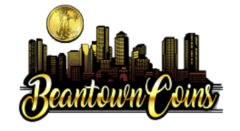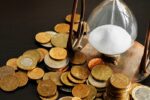Table of Contents
Numismatic coin sales near St. Petersburg, FL

Congratulations! You have inherited a coin collection. To make the most out of it, you have decided to sell them. Unfortunately, a few predators in the coin collecting community might take advantage of you. The good news is that unethical coin dealers are hard to come by. The vast majority of coin dealers are trustworthy business people who conduct themselves honestly and fairly.
However, you’ll need some knowledge and expertise to avoid the hazards of selling a coin collection for less than it’s worth. First, take some time to check over the coins you’ve acquired so you’re comfortable with the variety of items you’re dealing with. Take the time to learn how to distinguish between different coins and banknotes. If you follow this advice, you won’t get ripped off while selling your inherited coin collection.
Looking for the Best Coin Dealer?
Call Beantown Coins at 857-294-7820!
Tips in How To Sell Your Inherited Coins
1. Put All Of Your Coins In One Location
To begin appraising the coin collection you inherited, you must first grasp its magnitude. Also, look for a coin collector’s inventory/catalog or checklist. This could be useful when seeking to get the collection evaluated. It is best to gather the pack and any supporting paperwork into one location to begin the inventorying and valuing process. Be cautious where and when you do this, and keep it secret to avoid currency theft.
Also, while classifying and inventorying the collection, be careful not to harm the coins. You may need to buy some primary coin collecting supplies for this process, depending on how the compilation was initially maintained. With an adequately cataloged coin collection, the more valuable coins may be easily distinguished from the less valuable coins. Remember that a coin’s worth is not determined by its age or luster. Many dull and filthy coins have sold for millions of dollars.
2. Divide The Coin Collection Into Logical Categories
There are two types of coin collectors: “coin collectors” and “coin accumulators.” A coin collector’s collection will be organized rationally into sets, folders, albums, or labeled containers. A coin accumulator is someone who acquires coins and stores them in a box or safe without putting them together into a logical collection.
If the coin collection you inherited is genuinely a “coin collection,” you’ve already done the most of the work. However, if you’ve inherited a “coin accumulation,” you’ll need to start putting it together in some order.
Begin by sorting similar coins into separate containers or cartons. Place loose coins, for example, in a plastic container. Place sets in a cardboard box (proof sets, mint sets, collector sets, etc.). Because the majority of the folders and coin albums have already been identified, they can be placed on the side. Finally, encapsulated or slabbed coins may be found in storage containers. These coins have labels that identify them and provide the information you’ll need for cataloging and inventorying.
3. Start Inventorying and Cataloging the Collection
After you’ve categorized your coin collection into logical groups, you can begin cataloging the collection. You can accomplish this on paper with a couple of columns if the display is under 100 pieces. For more extensive collections, you might wish to utilize a computer spreadsheet to help you organize the information.
The coin’s grade is the second step in determining the value of your coin collection. Any coin collector would prefer a flawless, immaculate cash to one that has seen better days in their collection. As a result, demand for better-looking coins outnumbers the market for previously circulated coins. Determining a coin’s grade might be difficult, but with a bit of experience and understanding, you can estimate a coin’s grade to assess its value.
4. Determine The Value Of Your Coins
You can now estimate the value of the coins in your collection after you’ve identified and graded them. Of course, a coin’s value is determined by various circumstances, but the simple truth is that a coin is as expensive as the price that a person is willing to pay for it. We can, however, make a rough assessment of the value of your coins.
A coin’s worth can be determined using a handbook such as A Guide Book of United States Coins. However, remember that this book only gives approximate retail prices for coins purchased from a coin dealer. Like any other merchant, a coin dealer makes money by buying coins below retail and selling them to coin collectors at an acceptable profit. As a result, the prices shown in this book will be 30% to 50% higher than what a coin dealer will give you when you sell your collection.
5. It is Better To Hire A Professional Numismatist
You might also consider having someone else value your coin collection. For example, suppose you are overwhelmed by the scope of labor required to evaluate your coin collection appropriately. In that case, you might hire a professional numismatist to organize, categorize, inventory, and value your pool for you. From $35-$50 per hour, you will get the expertise of a professional coin dealer. If the dealer finds one rare coin, his fee will be well worth the knowledge gained.
Frequently Asked Questions
- What Is Numismatic Value?
A coin’s numismatic value is the price you may anticipate getting for it if you sell it. The coin’s numismatic value is determined by its rarity, quality, supply, and demand.
- Why Do People Collect Rare Coins?
Coins have a long and illustrious history, making coin collecting a lucrative pastime. For various reasons, including historical or artistic value, coin collectors may choose to invest in coins for the possibility of long-term profit.
- Who Can Value My Coins?
Trustworthy coin dealers, coin auctions, eBay, and price guides are excellent locations to start looking for coins. In addition, if your coins have been graded by one of the Top Tier grading agencies, such as PCGS or NGC, you may typically acquire a reasonable value estimate without having to view them physically!
Find the Most Reliable Coin Dealer in St. Petersburg, FL

Beantown Coins has a long history of being a reputable name in the numismatic industry. We are a one-stop-shop for collector coins, bullion, and other precious metals. We give expert guidance on buying and selling with ease to new collectors and seasoned investors. And with an A+ rating from the Better Business Bureau, you can rest assured that you’re dealing with a reputable company.




